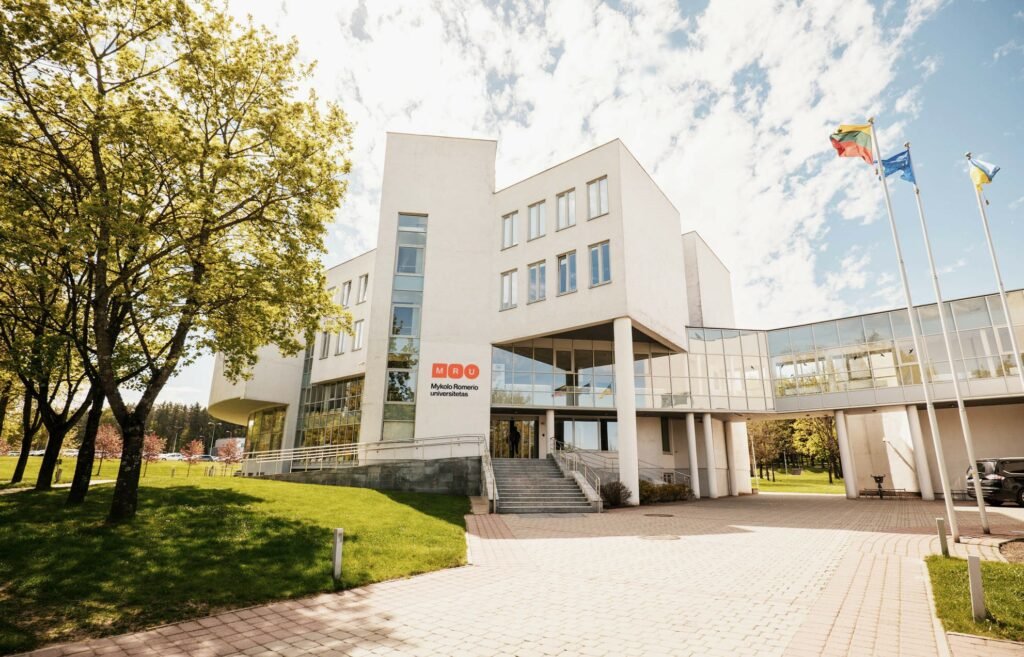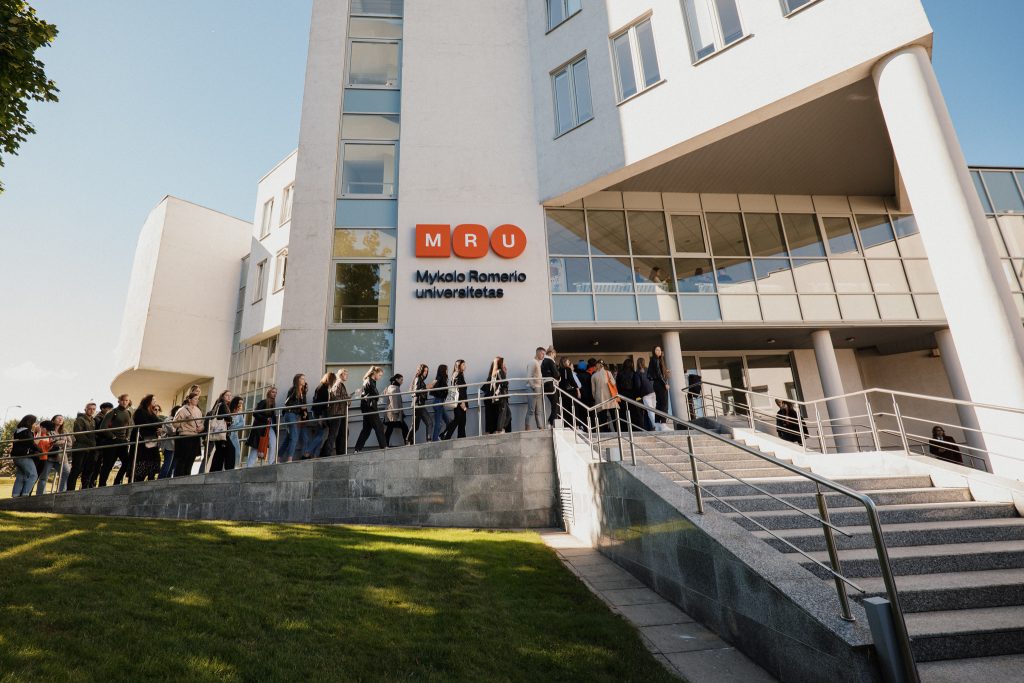Mykolas Romeris University (MRU)
Mykolas Romeris University (MRU), has been founded in 1990, and has established itself as a leading academic institution in Lithuania.
Established shortly after Lithuania regained its independence, MRU is dedicated to advancing the values of democracy, transparency, human dignity, and inclusivity. Over the years, MRU has grown alongside the nation, playing a pivotal role in fostering public governance, legal expertise, and research that contributes to both national and global progress. Named after Mykolas Romeris, and a leading statesman of interwar Lithuania, the university embodies his commitment to the rule of law and democratic principles. The university remains at the forefront of education and research, promoting societal development through education and innovation. With a focus on creating new state governance institutions and a commitment to training qualified professionals in law, public administration, business, and beyond, MRU is a dynamic force in the higher education landscape.

What does being part of ERUA mean for us?
As a proud member of the European Reform University Alliance (ERUA), MRU extends its academic influence beyond Lithuania, contributing to a broader European vision for a freer, fairer, and more democratic society. ERUA membership allows MRU to strengthen its international partnerships, build interdisciplinary collaborations, and foster innovation. Through ERUA, MRU aims to prepare its graduates for the global labour market and engage in impactful research that benefits not only Europe but the world.
What are our research priorities?
MRU prioritizes research that creates tangible societal impact, with a focus on interdisciplinary innovation in the social sciences, humanities, and emerging technologies. Key research areas include public governance, legal studies, business, security, and cybersecurity. MRU LAB, the university’s interdisciplinary research hub, unites 600 researchers to address challenges in social, technological, and humanitarian fields. Through partnerships such as the Cyber Security Research Centre, established with Australia’s RMIT University, and the UNESCO Chair on Artificial Intelligence, MRU continues to push the boundaries of technological research and legal frameworks.
Ambitious Goals for the Future
As part of its vision for 2024–2029, MRU aims to:
- Enhance Study Programmes for Global Citizenship: Fostering global competencies and preparing graduates for careers in an international context.
- Promote Research with Global Value: Focusing on innovative ecosystems in social sciences and humanities while collaborating with public and private sectors.
- Expand Societal Impact: Strengthening lifelong learning initiatives and contributing to societal development in Lithuania and abroad.
What are we known for?
MRU is known for its excellence in legal studies, ranking 201st globally in the 2024 QS World University Rankings for Law. MRU has maintained its place at 201st for two consecutive years. The university is also recognized for its sustainability efforts, earning a spot in the QS World University Rankings for Sustainability, marking the university’s commitment to environmental protection, equal opportunities, and impactful governance.
MRU’s expertise extends to public governance, security, and societal impact, with a strong emphasis on innovation and global engagement. The university’s modern infrastructure, including state-of-the-art research laboratories and facilities, supports its commitment to academic growth and societal contribution.

Where are we located?
The academic strength of MRU is reflected in its structure, which consists of five main faculties strategically located across Lithuania.
The Law School in Vilnius serves as a hub for legal education, while the Public Security Academy in Kaunas prepares experts in national and international security.
The Faculty of Human and Society Studies and the Faculty of Public Governance and Business, both based in Vilnius, offer diverse programmes aimed at addressing societal and business challenges.
Meanwhile, the Sūdovian Academy in Marijampolė extends MRU’s influence to the southern region, supporting academic and community growth.
Who are our international partners?
MRU’s international collaborations include partnerships with prestigious institutions worldwide. Notable partnerships include Australia’s RMIT University, with which MRU co-established the Cyber Security Research Centre, and UNESCO, through the creation of a Chair on Artificial Intelligence. As a member of ERUA, MRU also collaborates with universities across Europe to advance research, education, and societal impact. These partnerships support MRU’s vision of preparing graduates for global citizenship and enhancing its role as a leader in research with international value.
Co-funded by the European Union. Views and opinions expressed are however those of the author(s) only and do not necessarily reflect those of the European Union or European Education and Culture Executive Agency (EACEA). Neither the European Union nor the granting authority can be held responsible for them
